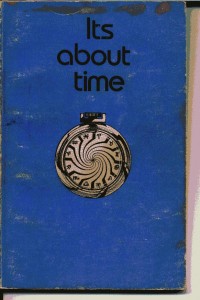A funny thing happened to me on the way to the war.
Unlike many writers and authors, I never had a burning desire to publish. I had my own dreams, but they were in very different directions. The following story will give you some idea of just how far I was from envisioning myself as a writer.
When I was a 20-year-old college student, I was given a 10-page, double-spaced term paper to write for a sociology class. I put if off until the last weekend, then finally sat down at my typewriter and began the first paragraph. Several hours later, I had a wastebasket full of abortive attempts, but I still didn’t have a first paragraph written. Finally, I gave up.
To understand the magnitude of this surrender, you must realize, as I did quite clearly at the time, the consequences of my choice. This occurred during the Viet Nam War, and I knew that if I didn’t write that paper, I would flunk Sociology. And if I flunked Sociology, I would flunk out of school. If I flunked out of school, I would lose my student deferment. Without that deferment, I would almost certainly be drafted.
This happened just before Christmas. By my birthday near the end of January, I had received notification that I was to take a pre-induction physical. Shortly after passing my physical, I received notification that I was to report for active duty on the last day of March. It was just that quick.
When I reported for induction, I was just another draftee on a collision course with death or dismemberment in a rice paddy somewhere in Southeast Asia. Although things turned out quite different from the way they looked on that day, to that point it had turned out pretty much as I had expected it would when I
gave up on writing my term paper. Apparently, as frightening as it was to be drafted into the Army in time of war, it was even more frightening for me to write a simple 10-page paper that would have amounted to a mere 2,500 words or so. Now, I do that sort of thing now for recreation in just a couple of hours; but that was then.
Obviously, things have changed for me in my relationship with writing in the intervening years, though not right away. It was almost exactly 10 years later when I published my first book.
In the process, I have experienced most of the things other people do in trying to become the author they want to be. The list of obstacles I have had to learn to get past includes, but is in no way limited to, the following:
- Drawing a blank when trying to figure out how to begin a book, story, or other piece.
- Having “white paper” paralysis—you know, when you look at a blank sheet of paper and that’s all you can see: a blank sheet of paper.
- Writer’s block—when you are deep into a project and can’t seem to figure out what to say next.
- Living in fear that the Literary Police will arrest you for impersonating a writer.
- Feeling like an uppity child pretending to have anything whatever to say, let alone being able to say it well enough that anyone would want to read it.
- Not knowing enough about your topic of choice to be taken seriously.
- Worrying that when you run it up the flagpole, no one will salute.
- Being scoffed at and/or rejected by “serious professionals” for what you write.
- Embarrassing yourself by being so deficient in the rudiments of spelling, syntax, and grammar that you get laughed at or scolded.
There are a lot more entries on this list, but I’m sure you get the idea. Sound familiar?
The good news is that I have, over the years, written well over a million words, and have managed to find solutions for all of those things. They only come up rarely now, and when they do, I quickly dismiss them.
Perhaps even better, I have also learned how to help others get past the same would-be barriers. What’s more, I enjoy it.
So that’s how I got here. Now I am able to consistently produce 1,500 words an hour of next-to-the-last draft copy (I still go over it one more time, just to make sure). I know this is a pretty accurate figure, because I have timed myself on several occasions over the years for several hours straight, and that’s how it turns out regular as clockwork. I have also learned that if research is required, I spend two hours doing that for every hour I spend actually writing.
In case you’re interested, I wrote the first twelve pages of my first book in longhand on a legal pad before finishing it on a portable typewriter. Everything I have published since has been done using a wordprocessor.
I offer myself up to those who want to become better writers, or want to learn more about writing and publishing books. That is why I created the Author’s Mastermind Academy. I wanted to share what I’ve learned over the course of four decades of writing and publishing. If that appeals to you, don’t keep it a secret. Click here to sign-up for a free one-hour sample of what Author’s Mastermind Academy is all about.
Meanwhile, I wish you all success in your writing endeavors. It is a wonderful way to share your inner-most thoughts with your contemporaries, and with those yet unborn.



